NIL
ACC commissioner Jim Phillips feels good about the league’s newfound stability after chaos
By MARK LONG AMELIA ISLAND, Fla. (AP) — The Atlantic Coast Conference is entering a period of stability. How long it lasts is anyone’s guess. Not even commissioner Jim Phillips knows for sure. “I still live one day at a time,” Phillips quipped. The ACC wrapped up its spring meetings Wednesday at the Ritz-Carlton in […]
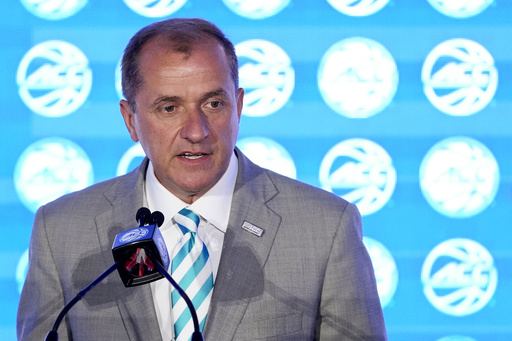
By MARK LONG
AMELIA ISLAND, Fla. (AP) — The Atlantic Coast Conference is entering a period of stability.
How long it lasts is anyone’s guess. Not even commissioner Jim Phillips knows for sure.
“I still live one day at a time,” Phillips quipped.
The ACC wrapped up its spring meetings Wednesday at the Ritz-Carlton in Amelia Island, with athletic directors and coaches having spent three days discussing wide-ranging issues affecting football and basketball.
The event came amid the backdrop of the pending $2.8 billion NCAA settlement, which would allow schools to share up to $20.5 million annually directly with their athletes.
The ACC spent the past two years tracking that legal battle while also wading through contentious litigation from two of its top member schools, Clemson and Florida State.
The Tigers and Seminoles approved a settlement in March that changed the league’s revenue-distribution model to benefit schools with marquee football brands. Both would presumably fall into that category.
Although the 2030-31 season looms as a potential spot for more changes to the college football landscape, the revised deal should fortify a league that looked to be on the verge of collapse while falling further behind the Southeastern Conference and the Big Ten.
“I just think you got to settle down,” Phillips said, noting he envisions four or five years of stability ahead. “And I think college athletics needs it to settle down, not just the ACC. I think we’ve positioned ourselves for that, and that’s a good thing. It just is.
“Chaos and the constant wondering of what’s happening here or there, I just think that distracts from the business at hand. But I feel good about where we’re at.”
The league’s revised revenue-distribution model incorporates TV viewership as a way for the league’s top programs to generate more money.
Florida State, for example, expects roughly $18 million extra annually from the tweaked structure. Those schools outside the top tier could see a decline of about $7 million a year.
“We’re really excited that this is now put behind us,” FSU athletic director Michael Alford said. “We have a path going forward. We have a path to really look at how we control the conference together, how we expand on the great brands that are in this conference and really promote the ACC and especially ACC football moving forward and give it its day in the sun.”
Even though ACC schools are bracing for the NCAA settlement and how it will change their business model, Phillips believes President Donald Trump’s proposed commission on collegiate athletics could help.
“We have not been able to get this thing into the end zone, so to speak,” Phillips said. “If the President feels that a commission could potentially help, I’m all for it.”
The proposed commission would be co-chaired by former Alabama coach Nick Saban and current Texas Tech board of regents chairman Cody Campbell.
“I think it’s well-intended,” Phillips said. “I do feel that the time is right based on all the work that’s previously been done and a supportive administration that’s in there. So I’m hopeful that that can be a positive to an end result that gets us a standardized law across the country with NIL.”
NCAA president Charlie Baker spoke at the ACC meetings Monday and said he was “up for anything” if it helped formalize NIL laws that differ from state to state.
“I think it speaks to the fact that everybody is paying a lot of attention right now to what’s going on in college sports,” Baker said. “I’m up for anything that can help us get somewhere.”
While power four conferences — the ACC, the Big Ten, Big 12 and the SEC — continue to negotiate the future of the College Football Playoff beginning in 2026, Phillips declined to reveal specifics regarding the league’s stance on automatic qualifiers.
“I remain steadfast about fairness in the system and access,” he said. “Out of respect for my colleagues, I want to hold off on commenting about AQs and specific models.”
The 16-team playoff model that has been widely discussed would grant four automatic berths to the Big Ten, four to the SEC, two to the ACC and two to the Big 12. That would leave four bids, with as many as three of those going to at-large teams and the other to the highest-ranked team from the Group of Six.
The ACC, according to several coaches, wants three guaranteed spots.
“You start to wonder if we are going to have an invitational,” SMU coach Rhett Lashlee said. “Every year, one league may be better than the other, and it can change to some degree.
“To say we’re going to pick teams based on what’s happened the last 15 years, especially in an environment where we have more and more parity with the way the rules are, I think it’s a slippery slope.”
___
Get poll alerts and updates on the AP Top 25 throughout the season. Sign up here. AP college football: https://apnews.com/hub/ap-top-25-college-football-poll and https://apnews.com/hub/college-football
NIL
Miami Heat draft Illini guard Kasparas Jakucionis with No. 20 pick in 2025 NBA Draft
The Miami Heat drafted Illinois freshman guard Kasparas Jakucionis with the No. 20 overall pick in the 2025 NBA Draft on Wednesday. One of the top international prospects in the world, Jakucionis earned Third Team All-Big Ten and Big Ten All-Freshman for Illinois this season after averaging 15.0 points, 5.7 rebounds and 4.7 assists while shooting 44.0% from the field […]
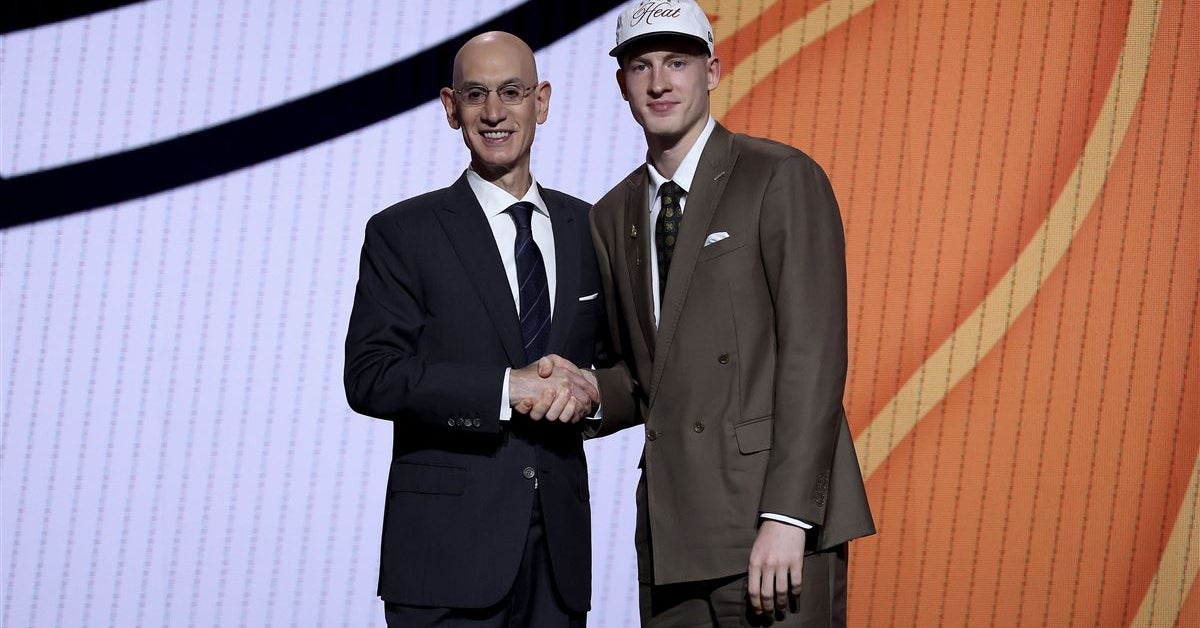
The Miami Heat drafted Illinois freshman guard Kasparas Jakucionis with the No. 20 overall pick in the 2025 NBA Draft on Wednesday.
One of the top international prospects in the world, Jakucionis earned Third Team All-Big Ten and Big Ten All-Freshman for Illinois this season after averaging 15.0 points, 5.7 rebounds and 4.7 assists while shooting 44.0% from the field and 31.8% from three.
Jakucionis, who just celebrated his 19th birthday in late May, started the season on a tear before a midseason wrist injury and late-season slump.
The 6-foot-6 guard from Lithuania averaged 16.7 points on 50% shooting (41.6%) three to go along with 5.4 rebounds and 5.4 assists during his first 15 games to lead Illinois to a 12-3 start. Jakucionis then suffered a wrist injury and missed two games but had five 17+ point performances in an eight-game stretch to seemingly bounce back. But Jakucionis struggled in his final nine games at Illinois, averaging 12.2 points on 36% shooting (25% three) with more turnovers (38) than assists (26).
Still, Jakucionis had one of the most productive freshmen seasons in Illinois history. He set the Illinois freshman record for 20+ point games (10) and averaged the fourth most points (15.0) by an Illini freshman behind only Kiwane Garris (15.9), Cory Bradford (15.4) and Deon Thomas (15.1) while also averaging the fourth-most assists (4.7) by an Illini freshman and the seventh-most rebounds by an Illini freshman (5.7).
“Kasparas had a fantastic year, and I am so impressed with how well he handled all that was thrown at him,” head coach Brad Underwood said in a statement in April. “To come in at 18 years old, new country, new program, new teammates, and be handed the keys and tasked with running the offense against the competition he faced every night, that’s a lot to ask of a freshman. But he impacted the game in every area, by scoring, decision making and passing, and rebounding. KJ is successful because of his love for the game, his intelligence, his work ethic, his desire to be great, and most importantly his character. Those traits will continue to serve him well in the NBA.”
Why it matters: Jakucionis is the first Illinois basketball player to become a one-and-done NBA Draft pick. Furthermore, Illinois has now had first-round draft picks in back-to-back years for the first time since Frank Williams and Brian Cook were selected in the first round in 2002 and 2003, respectively. The Minnesota Timberwolves selected Illini guard Terrence Shannon in the first round (No. 27 overall) last year.
How he fits: Jakucionis fell farther than most expected, but what a landing spot for him. He will play next to a top-tier scorer in Tyler Herro and complements him well as a big lead guard who can distribute for others, including great three-point shooters in Duncan Robinson and Nikola Jovic, but Jakucionis can also play off the ball. Jakucionis isn’t a strong defender, but he should be helped playing alongside two very good defenders in Bam Adebayo and Andrew Wiggins. He’ll also be coached by one of the best coaches in the NBA in Eric Spoelstra. The wait was longer than expected, but the fit might be as good as it gets.
What it means: After a sensational run last spring and summer against international competition, Jakucionis came to Illinois as a first-round draft pick, but he only boosted his stock while in Champaign. He had a rough last month, but Jakucionis was one of the Big Ten’s best players for most of last season and showed he can succeed against top-tier competition. His success only strengthens the Illini’s recruiting pitch in Europe moving forward as Illinois looks to build a Gonzaga-like presence abroad.
GET 50% OFF ILLINI INQUIRER VIP: Get Illini Inquirer for 50% OFF for a limited time only! Join the No. 1 independent source of Illini Inquirer for our best deal of the year. For a limited time, you can get the best Illinois Fighting Illini coverage of the transfer portal and offseasons for Illini basketball and Illini football. All for just $4.48 per month and 15¢ per day! All new members can receive this great deal: 50% off an annual VIP membership for your first year! That’s a savings of more than $60! So sign up now!
NIL
Brent Blum Named Director of NIL Development for Cyclone Sports Properties
Jake Lovell and MaryKate Walling set to join Learfield Impact NIL team at CSP AMES, Iowa – Learfield’s Cyclone Sports Properties, in partnership with Iowa State Athletics and Learfield Impact, Learfield’s industry-leading Name, Image and Likeness (NIL) service combining the power of expert people, award-winning content, and innovative technology, has announced the appointment of Brent […]
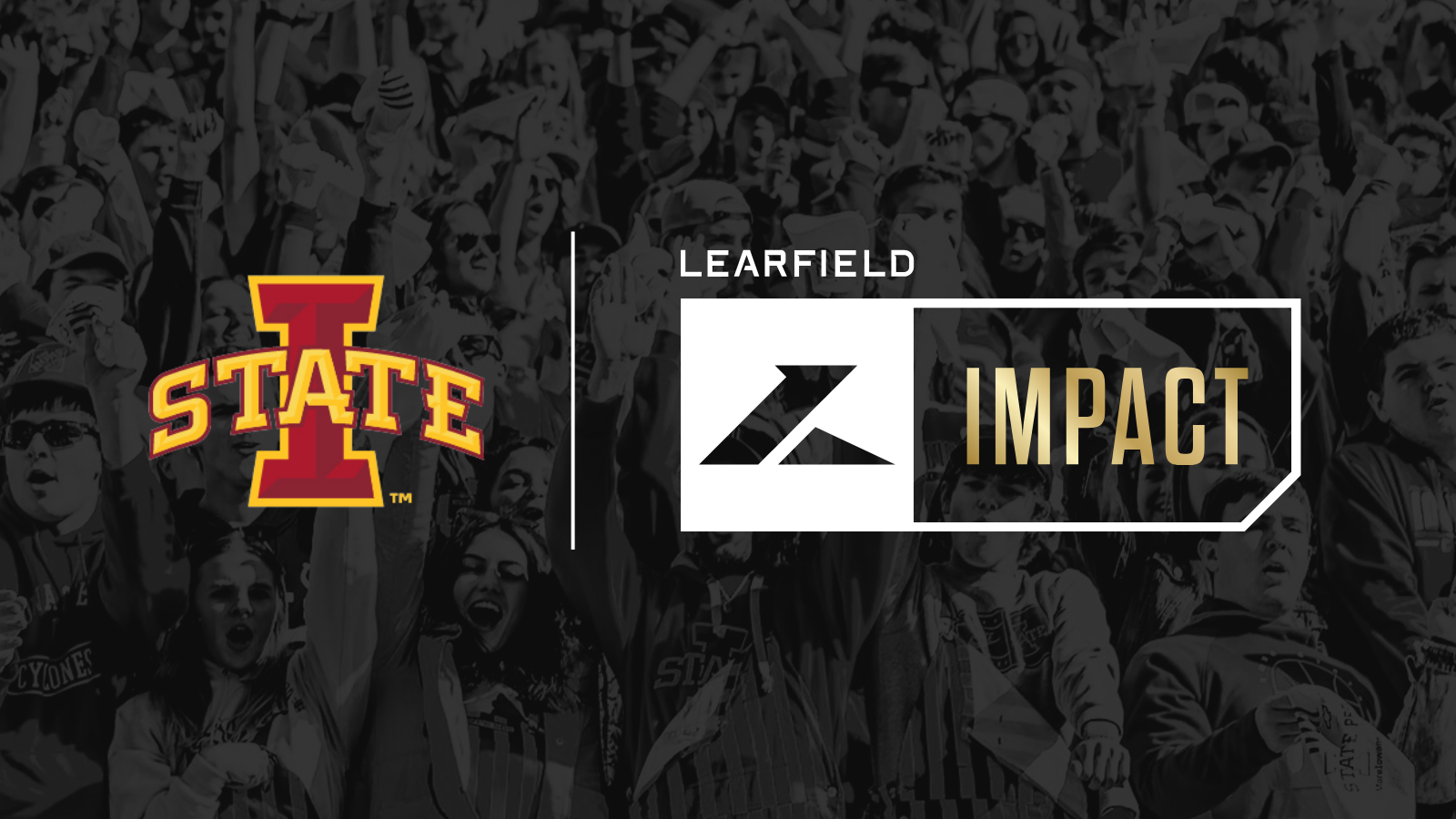
Jake Lovell and MaryKate Walling set to join Learfield Impact NIL team at CSP
AMES, Iowa – Learfield’s Cyclone Sports Properties, in partnership with Iowa State Athletics and Learfield Impact, Learfield’s industry-leading Name, Image and Likeness (NIL) service combining the power of expert people, award-winning content, and innovative technology, has announced the appointment of Brent Blum as the new Director of NIL Development, Jake Lovell as NIL Partnerships and Operations Coordinator and MaryKate Walling as NIL Content Producer.
“We are excited to launch this innovative initiative with Learfield as we navigate this new world intercollegiate athletics enters starting July 1,” ISU Director of Athletics Jamie Pollard said. “We believe that these positions are a continued evolution of our long-standing partnership and allow us to create additional opportunities through existing and new corporate partners.”
Learfield Impact integrates the addition of these three on-campus NIL leadership positions, innovative technology in the form of Learfield’s Compass NIL dealmaking platform, and the Emmy Award-winning Learfield Studios content team into an unmatched full-service NIL offering. This powerful combination seamlessly generates authentic dealmaking and creates opportunities for influential storytelling content between student-athletes and brand partners.
In this newly created role, Blum will help oversee the university’s evolving NIL strategy, working closely with student-athletes, coaches and donors, as well as the Iowa State Foundation and corporate partners to build innovative and sustainable support. His work will focus on aligning the athletic department’s NIL vision with national best practices while staying true to the culture and values of Iowa State.
Blum currently serves as Executive Director of the We Will Collective, where he has helped raise over $12 million in support of Iowa State student-athletes, backed by contributions from more than 10,000 individual donors and area businesses.
“Cyclone Nation’s involvement is as important as ever as we tackle this transition in college athletics,” Blum said. “This next chapter gives us the opportunity to build a more unified and long-term NIL infrastructure for Iowa State. In the short term, continued support of We Will is vital as we move forward.”
Lovell, who has been a member of the CSP staff for three years, will assist Blum in fulfilling NIL sponsorships and Walling, who received both her undergraduate and master’s degrees from Iowa State while working as a content producer for the Cyclone Football program, will produce NIL-related content for CSP sponsors.
With the House settlement approved by Judge Claudia Wilken earlier this month, the Iowa State Athletics Department will now provide direct financial support to Cyclone student-athletes on top of the world-class education and other benefits that they currently receive. Nearly every Cyclone student-athlete will receive a financial payment from the University for their NIL rights beginning on July 1.
Iowa State Athletics will provide the maximum revenue-sharing amount allowed, currently projected to be $20.5M for the 2025-26 fiscal year, by the House settlement to its student-athletes. The We Will Collective will begin transitioning its members to the We Will Fund that will be housed within the ISU Foundation next month. Contributions to the We Will Fund will allow donors to invest in the support of student-athletes while helping ISU ensure future success of its championship-caliber programs.
“The Iowa State fan base has long-been recognized as one of the nation’s most-loyal, and their continued generous support of the We Will Fund will be critical as we move into college athletics’ new era,” Pollard said. “We are grateful for all of our fans who have contributed to the We Will Collective over the last few years and it is our sincere hope they continue that support as we transition to the We Will Fund to ensure that our programs are positioned for greater success in this new era.”
About Learfield
Learfield is the leading media and technology company powering college athletics. Through its digital and physical platforms, Learfield owns and leverages a deep data set and relationships in the industry to drive revenue, growth, brand awareness, and fan engagement for brands, sports, and entertainment properties. With ties to over 1,200 collegiate institutions and over 12,000 local and national brand partners, Learfield’s presence in college sports and live events delivers influence and maximizes reach to target audiences. With solutions for a 365-day, 24/7 fan experience, Learfield enables schools and brands to connect with fans through licensed merchandise, game ticketing, donor identification for athletic programs, exclusive custom content, innovative marketing initiatives, NIL solutions, and advanced digital platforms. Since 2008, it has served as title sponsor for the acclaimed Learfield Directors’ Cup, supporting athletic departments across all divisions.
NIL
‘That’s not normal’: Florida State’s rev-share contracts are raising eyebrows, agents and industry experts say
As college football races toward the start of the revenue-sharing era on July 1, a new battle is unfolding — not on the field, but in the fine print. Schools and player agents are clashing behind the scenes over the language of contracts, with some universities pushing aggressive terms that raise eyebrows across the industry. […]
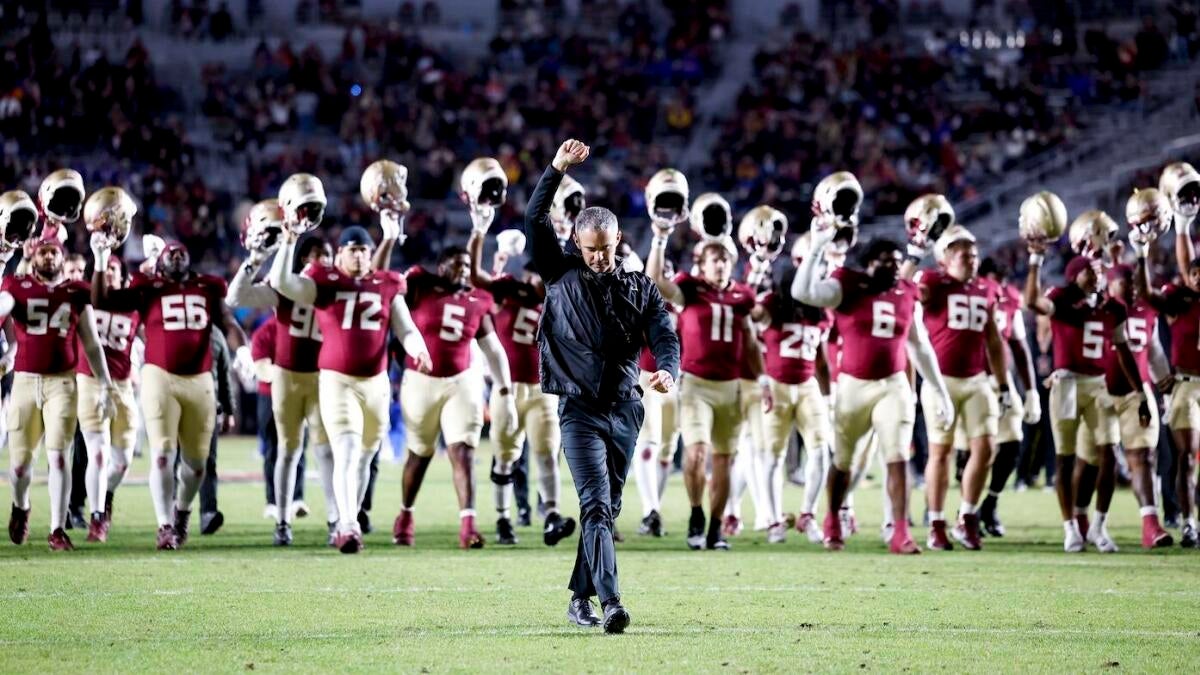
As college football races toward the start of the revenue-sharing era on July 1, a new battle is unfolding — not on the field, but in the fine print. Schools and player agents are clashing behind the scenes over the language of contracts, with some universities pushing aggressive terms that raise eyebrows across the industry.
While some players received front-loaded payments ahead of July 1, many are now encountering multi-page agreements drafted by school lawyers, packed with provisions that attempt to lock in control, minimize financial risk, and, in some cases, limit players’ rights.
“Since this is new and uncharted territory, they’re trying to put in as many things as they can think of and protect that university and see what they get push back on and what they don’t,” Mit Winter, an attorney who works heavily in the NIL space told CBS Sports.
Put another way by an NIL agent: “They’re throwing everything they can and the kitchen sink.”
That sink?
It’s appearing quite often in Tallahassee, according to multiple agent sources who have at least one player on the Florida State roster.
The Seminoles have included what those agents describe as aggressive language in their rev share contracts, which cover a broad range of issues and are issued directly by the school.
One clause, which CBS Sports has seen a copy of, allows the team to extend a player at the end of their contract unilaterally without having to negotiate with the player. Another section on team rules — common in most NIL or rev share deals — includes a maximum $2,500 fine on the first offense if a player loses team equipment such as a pair of cleats. The max fine for using a controlled substance for the first time is $1,000.
There’s another clause about things that would constitute a breach of contract. Among them is “illness or injury which is serious enough to affect the value of rights granted to the school.” The way it’s written allows Florida State to renegotiate or even cancel a player’s contract at its discretion after any sort of injury — among other potential liquidated damages provisions included as part of the contract — including those that happen on the football field.
There’s also a provision that, depending on how it’s interpreted, could limit an athlete’s right to counsel during any future negotiations.
“Some of the concepts are pretty standard,” an agent who represents at least one Florida State player said; they were granted anonymity to allow them to speak freely. “But FSU is going about this far more aggressively than any school I’ve seen. I’m disappointed by the adversarial nature of these contracts.”
It’s not just agents who take exception with the way FSU is attempting to write its rev share contracts. CBS Sports contacted at least one general manager from every Power Four conference to understand if some of Florida State’s provisions are considered normal.
Said one Big Ten general manager of the three stipulations above: “That’s not normal.”
Said a GM from the Big 12: “I do understand they have all the leverage, but f***.”
Still, other agents contacted by CBS Sports said while Florida State is contentious with its reworked rev share agreements, the pushy and controlling language isn’t exactly uncommon.
“I don’t think Florida State is the worst at all in this business,” said an agent with a player on FSU’s roster. “There are schools I trust less.”
Florida State, when reached for comment, offered this statement via a spokesperson in response to questions about some of the provisions CBS Sports highlights in this piece.
“As we enter into a new age of collegiate athletics, Florida State has put together an agreement that provides deliverables and expectations for all parties. Each individual situation will be unique and the hypotheticals are impossible to predict. However, we are committed to continuing to provide an elite experience for our student-athletes in all aspects of their collegiate career. Florida State is looking forward to the mutually beneficial partnerships with our student-athletes in this new era.”
All of this comes at an unstable time in college athletics where schools are attempting to balance what is essentially a pay-for-play model wrapped in the guise of a payment system still built around a school’s access to a player’s name, image and likeness.
That push and pull is something Sports and Higher Education Attorney James Nussbaum, of Church, Church Hittle + Antrim, which consults and works with double-digit D-I programs, said is creating unsteady language in which negotiating agents want things similar to employee protections while schools want as much flexibility as possible if a player’s NIL value tanks due to something like an injury.
“Everybody knows that you have to participate in athletics for your name, image and likeness to be worth anything to the schools you’re going to,” Nussbaum said. “At the same time, we’re trying to continue under this framework where we’re saying this isn’t pay for play.
“Part of why I think it’s difficult to negotiate is because of the framework where we’re not able to compensate you directly for your participation. … There’s a lot of grey area between those two poles.”
Not every Florida State player has been delivered their revenue sharing contract at this point. CBS Sports contacted the agents of several of the top transfer additions for Florida State this offseason — shoe-in starters and borderline top 10 players on the roster — and their money was mostly front-loaded ahead of July 1. They’re expected to see their rev sharing contracts in the coming days.
But a lot of players will have their payout split between the collective dollars and rev share. Some programs allow the terms of their collective contracts to carry over to their rev share deals. Florida State, however, had some players sign a memorandum of understanding, a one-page document that lays out the intended terms between two parties. Others were merely assured their collective deals would carry over into the rev share.
Florida State, like many other programs nationally, was only able to send out the full version of its rev share agreements once the House Settlement was approved on June 6.
In conversations with three agents who represent at least one Florida State player who has been sent their full rev share contract in recent weeks, the Seminoles seem to have settled on a standard contract for its roster. Big Ten and SEC schools generally work off a standardized contract the conference provides to its school. The ACC does not have a contract baseline for its programs.
That lack of universal standard in the ACC has led to some unique language from the Seminoles.
The option to extend
“[school] shall have, until the end of Student-Athlete’s NCAA eligibility, dependent, successive options to extend the Term under the same terms and conditions as the existing Term, unless the Parties mutually agree in writing to a change in such terms and conditions, for additional periods of one year by providing written notice of such extension (e-mail is sufficient) to Student- Athlete no later than twenty (20) days prior to the expiration of the then-current Term of the Agreement. Under such an extension option, the Total Compensation payable to Student-Athlete for the one-year extension period shall be a pro rata, annualized portion of the compensation set for the initial term.
That language, which allows Florida State to extend a student-athlete’s deal pretty much at will by the end of their contract, is considered uncommon when talking with agent and general manger sources across the country.
“That locks a kid in for the rest of his eligibility with no ability to negotiate,” said the agent who shared the contract draft language.
Many schools provide players a window to negotiate after every regular season. Other programs, like in the SEC, have begun writing in a “first right of refusal” clause, which allows them to match a higher offer if they receive one from another school.
But sources CBS Sports spoke to consider Florida State’s extension clause unusually one-sided.
“I’ve never seen that before,” Winter said. “I would say that’s not a usual provision.”
A lot of Florida State players will have multi-year deals as part of the wave of initial revenue sharing contracts, so that language won’t always apply. But it is language that would come up for those on one-year deals or in the future if an athlete reaches the end of their agreed contract length.
A FSU source said players are also able to ask for a renegotiation of terms at the end of a contract if both sides desire an extension. That source indicated the school’s intent is to negotiate in good faith.
Injury and breach of contract
“In addition to a breach of any specific provision of this Agreement, the following circumstances create a breach of contract by Student-Athlete:
1. Illness or Injury Impacting Value of NIL Rights. Student-Athlete experiences any illness or injury which is serious enough to affect the value of the rights granted to [school] under this Agreement; provided, however, that nothing herein shall affect or limit [school]’s obligations to provide Student-Athletes with medical coverage of injuries sustained as a result of participation in [school] Athletics as required by Section 16.4 of the NCAA Division I Bylaws, where applicable.”
A few schools CBS Sports spoke with for this story have language or have considered adding language that allows them to cancel or alter a player’s dollar amount if they suffer an off-field injury doing an unsanctioned activity. Florida State features that language within its rev share contract drafts that it’s sent to players and their representation.
But nobody CBS spoke with considered the way Florida State wrote the above injury provision as normal if the injury occurred in a football context.
“That’s excessive,” said an ACC Director of Player Personnel.
It’s different from the NFL where athletes are employees and there are injury protections for players if they were hurt in organized activities and a stated process for medical second opinions and injury settlements.
And while an agent CBS spoke with expects Florida State to ultimately remove that stipulation from the contract, the way it’s currently written gives FSU full control to adjust a player’s salary when any injury occurs.
“It’s the first time I’ve ever seen something like that with an injury,” another agent said. “The way they’re going about it, they’re having it all in writing where at their discretion they can renegotiate at any time. Guys get injured all the time. The terms are very friendly to them.”
There’s no telling how, or would, Florida State actually enforce the injury provision for breach of contract as written. But those who have seen the contract in the agent space worried that Florida State felt the need to include it in the first place to have that leverage over its athletes.
Team rules
It is common for teams to put program rules in contracts. A SEC GM CBS spoke with said they have a fine system, usually related to things like failed drug tests or weight violations.
A pair of Syracuse freshmen, offensive tackle Byron Washington and defensive back Demetres Samuel Jr., recently revealed on the “State of Orange” podcast the fine structure the Orange use for team violations.
“We get fines for missing more than two absences in class,” Samuel said. “We got class checkers. If you don’t have your jug or your tablet for like …”
Chimed in Washington:”That’s $50.”
Samuel said later in the interview that if players don’t meet weight for a third time in a week it can cost them a quarter of their monthly check.
Florida State has multiple pages of team rules included in their revenue sharing contract. They range from small — a maximum $100 on the first offense for things like tardiness to team events ($50 for academic activities) — to large with a maximum $2,500 reduction in compensation if a player loses any team gear or technology.
The substance abuse fines — be it steroids, marijuana or another substance — scale quickly. The first offense is a maximum of $1,000 reduction from total compensation. The second offense is a maximum 10% of the compensation. A third offense? It’s 50% and a possible dismissal at the head coach’s discretion.
“They’re a bit arbitrary,” an agent said. “One thing I pushed FSU athletics on is this language needs to tie to a policy, right? I have a player in the NFL and his contract has things like showing up to meetings, drug testing but it’s a rigid codified process. The way (FSU’s) policies are written in the contract they could effectively line up three cups, have a kid pee, say it’s a failure and come back in 20 minutes, do it two more times, call it three failures and that penalty for that is his contract value. … And there’s no appeals process.”
That agent also emphasized there’s no functional appeals process for an athlete or burden of proof the team must reach. They said the only recourse an athlete has to challenge a fine is arbitration, where the athlete will likely go up against a school’s general counsel office with infinitely more resources.
A push and pull between schools and agents
Winter had previously come across Florida State’s rev share agreement before talking with CBS Sports. His thought after reading it: “Jesus Christ, this one goes far.”
It’s not uncommon for schools to push the boundaries of what’s considered normal with contracts. Often schools will put many stipulations in deals they’re willing to take out if an agent raises a concern. That has already happened with a few provisions at Florida State, per sources, but many of the above tension points remain and others are set to arise as more of these contracts are sent out.
As for what gets taken out, it can often depend on the leverage a particular athlete has or the importance of the individual clause to the school.
To Nussbaum, this is a period of uncertainty given that schools don’t exactly know how enforcement will play out under the new NIL GO landscape, where schools are attempting to create maximum flexibility. He said it’s up to the school to set priorities for what they deem important within the contracts.
“This is where you really have to have some of these hard conversations with your board and president and say, ‘What are our goals here?'” Nussbaum said. “If it’s simply coming up with the most money we can to compensate these student athletes. That’s one approach. But I don’t think any school is taking that approach.
“Yeah, you’re coming up with something that has some precedential value that’s necessary in a competitive industry like this … I think schools are aware and don’t want to tie themselves down unnecessarily in the future but at the same time want to be competitive and recruit in a way that will set them up for the future.”
And it’s not as if aggressive or controversial language is limited to the rev share era.
CBS spoke to one agent earlier this summer who said one of his clients at another school initially received a contract that allowed a school to terminate for any “alleged” criminal activity with no stipulations for due process. Another school attempted to put in language for damages that if a player left the program before the end of his contract term, he’d need to pay back all money included in the contract, including “unearned money.”
“That’s problematic,” the agent said. “You haven’t made it yet. We understand there’s damages, but a lot of these contracts were back-loaded for when revenue share kicked in.”
Schools are trying to protect themselves from players consistently transferring following a cycle in which more than 4,000 FBS players entered the portal. That’s where aggressive liquidated damages and new buyout language included in many rev share comes from.
But in a sport without an employee-employer relationship or collective bargaining, schools and players are left on an island to negotiate deals, which is where the barrage of restrictive language comes from on the school’s side.
One of the agents CBS spoke to for this story would push back on the idea that’s all Florida State is doing.
While the contested language may end up being removed from the contract its presence, they said, it seems to go beyond a mere negotiating tactic.
“If that were truly their intent, they would write it like that and it’s only useful in cases of emergency,” the agent said. “For example, if they’re only trying to go for a catastrophic injury or when a kid can’t play for the rest of the season, why does the injury clause account for any injury that has an impact on NIL value? They had smart attorneys write these things. They would have written it that way. If you want it for only break glass in case of emergency, you have to put the glass in front of the letter.”
NIL
NIL leak threw Nevada’s season off course last year. Here is the Pack’s plan to fix that
The Nevada men’s basketball team’s 2024-25 season got off to a great season. The Wolf Pack began the year with blowout wins over power-conferences teams Washington and Oklahoma State; a victory over NCAA Tournament squad VCU; and a 16-point romp over 21-win Santa Clara, which advanced to the NIT. It added up to a 6-1 […]
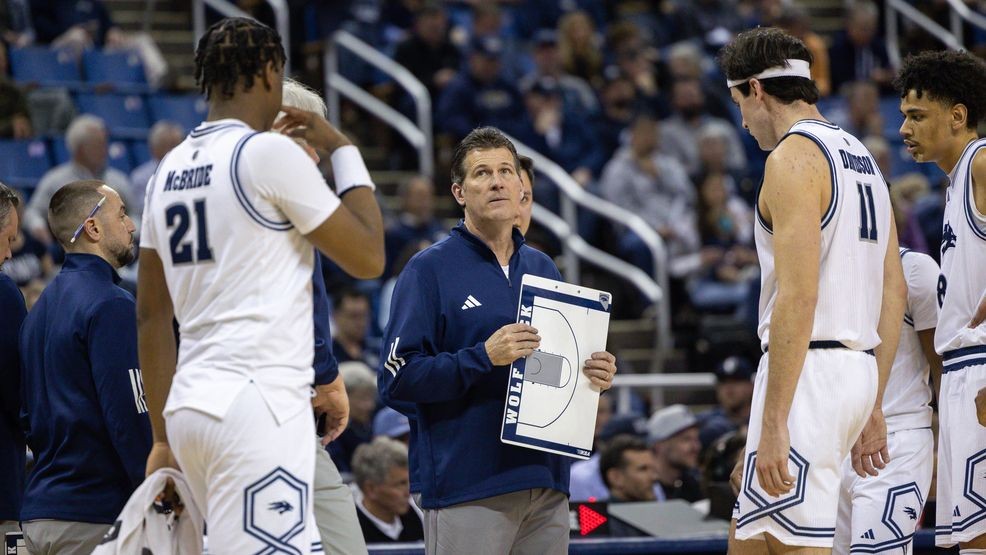
The Nevada men’s basketball team’s 2024-25 season got off to a great season.
The Wolf Pack began the year with blowout wins over power-conferences teams Washington and Oklahoma State; a victory over NCAA Tournament squad VCU; and a 16-point romp over 21-win Santa Clara, which advanced to the NIT. It added up to a 6-1 start with the lone loss by two points to NCAA Tournament-bound Vanderbilt. At that point, Nevada was getting votes in the AP Top 25 and living up to the hype as a Mountain West contender.
“We got off to a really good start,” Nevada coach Steve Alford. “I thought our guys did a lot of good things coming out of Charleston being 6-1 with our only loss a two-point loss to Vanderbilt. I thought we had things going at a really good rate. And in this NIL world, it’s new not just to coaching staffs, but it’s also new to players. For whatever reason, from public numbers — not so much from NSN or media — but those NILs getting out caused a big riff.”
Those name, image and likeness payments leaked within the team after Nevada’s trip to the Charleston Classic. And in its first game thereafter, the Wolf Pack was blown out by Washington State then took a bad loss at Loyola Marymount. It scored back-to-back wins over South Dakota State and Texas Southern but then lost its first four games of the MW season and ended up going 11-15 after the NIL numbers got out.
“It took the better part of a month to just kind of try to educate how this works because a high school player has a certain value in the NIL, a returnee has a certainly value in NIL and then the portal individual has a certainty value,” Alford said. “Not all those things match, and so there was a lot of education going on.”
In modern college basketball, it’s not just about Xs and Os and player development for coaches anymore. Players are now getting paid, either via NIL deals that have to go through third parties outside of the athletic department. Or now through revenue sharing, which will become legal next week and allows schools to directly pay players up to a $20.5 million distribution pot.
That has added another layer to team building, both in recruiting and retention and in keeping players happy while trying to maintain a team-first culture. Whereas playing time, or a lack thereof, used to be a potential point of frustration for players, money is now a factor, too.
“You’re just dealing with a lot of things, and I don’t think our team handled it well,” Alford said. “And then all of a sudden, you lose your opener in league play and then you start 0-4 in league play, and now you’ve been smacked pretty good and we just never recovered. We played basically .500 basketball from there. But I thought our basketball got better.”
After the 0-4 start in MW play, the Wolf Pack won seven of its next 10 league games before going 2-6 down the stretch. That was partially a result of a injuries as Nevada lost veterans Tré Coleman (broken hand), K.J. Hymes (back) and Daniel Foster (ankle) to season-ending injuries. Those players combined for 17 college seasons but were unavailable by season’s end.
“I did think we were better at the end, but losing Tré for the better part of February on and losing Daniel (was big),” Alford said. “Daniel’s best year was a year ago when he was fully healthy. And it’s very unfortunate that our community never really saw Daniel the way we saw Daniel because when he was healthy he was that Swiss Army knife that could do an awful lot of things for us. K.J. was not healthy this year. So, we had to battle a lot of those things, and I give our guys a lot credit. We would have been in the NIT. The guys opted not to play, and I get it. K.J. wasn’t healthy. Tré wasn’t. Daniel wasn’t. I’m not sure we would have had five, maybe six players going to the NIT, so that’s not a good thing.”
This offseason has brought massive roster changes as Nevada returns just four players, including zero starters, with nine newcomers (six transfers, three freshmen), which Alford said are the most he’s added in one offseason. That roster flip should wash away any residual issues with last year’s NIL payments, but those aren’t going away. The money is only growing with revenue sharing now part of the equation. And unlike NIL deals, which are not legally allowed to be dictated by the coaches or athletic department, revenue-sharing money will be determined and distributed by schools. Nevada’s goal is to reach at least $5 million in NIL/revenue share money. How that will be dispersed is undetermined.
Alford said he has leaned on associate head coach Craig Neal when educating his players on NIL. Neal is a former agent and NBA assistant coach with that league dealing with a wide array of salaries for its players. Alford was asked what approach Nevada will take moving forward to ensure a team-first mentality with players now being compensated at different levels.
“I go back to agents,” Alford said. “These guys are getting agents, and they’re charging 15 percent or more. It’s insane. If you’re an NBA player, it’s 4 percent or less. These kids are figuring out that — and they don’t think 15 percent is a lot; yeah, it is — that after taxes, you’re not making the $1 million that these NBA guys are making where they are only taking 4 percent. So, you’re just dealing with a lot of that as well. These kids are going through it for the first time and learning. We’re finding that late in our career we’re doing more communication.
“We always felt like we were a very communicative staff. Now it’s on steroids. It’s daily just investing in these young people’s lives because it’s a whole different deal. It’s different for the parents. They don’t have a good feel or understanding of what it is because overnight the families are getting all this kind of money, which is a positive. It’s a great thing for the families. But learning how to deal with it and handle it and keep it in perspective, those are things that we’re constantly trying to educate.”
Nevada should be faced with less entitlement from players entering this season given its new-look roster, which includes four Division I transfers and one each from the NAIA and junior-college levels. The only returning player for Nevada who has started a game for the Wolf Pack is junior-to-be Tyler Rolison, who has eight starts in two college seasons. That will lead to heated competition for starting jobs.
“I think we’ll have really good competition, which is going to be a good thing,” Alford said.
While paying players is now a huge part of college athletes, Alford said he doesn’t want to lose sight of his job as a coach to develop the overall person.
“It is about the development of the individual, too,” Alford said. “I don’t want these kids now that they’re getting paid to now become entitled and not understand the era that they’re living in is a great era to live in. You’re getting paid. The market value changes. It changes with coaches; it changes with players.”
Offseason conversation with Steve Alford
0:15 — Alford’s son, Bryce, winning an NBA title with the Thunder
1:10 — Kobe Sanders’ draft stock
3:50 — First impressions of 2025-26 roster
5:35 — Offseason trip to the Bahamas
8:00 — What Nevada was looking for in the transfer portal
10:05 — Wolf Pack’s smaller cast of point guards
11:10 — Elijah Price’s addition to the roster
13:00 — Adding players from the NAIA and JuCo level
14:40 — The competition for starting jobs
18:15 — NCAA Tournament expansion
19:30 — Revenue sharing with athletes
20:55 — GSR Arena moving forward with groundbreaking
22:05 — Getting Nevada over the championship hump
NIL
Blum Named Director of NIL Development for Cyclone Sports Properties
AMES, Iowa – Learfield’s Cyclone Sports Properties, in partnership with Iowa State Athletics and Learfield Impact, Learfield’s industry-leading Name, Image and Likeness (NIL) service combining the power of expert people, award-winning content, and innovative technology, has announced the appointment of Brent Blum as the new Director of NIL Development, Jake Lovell as NIL Partnerships and […]
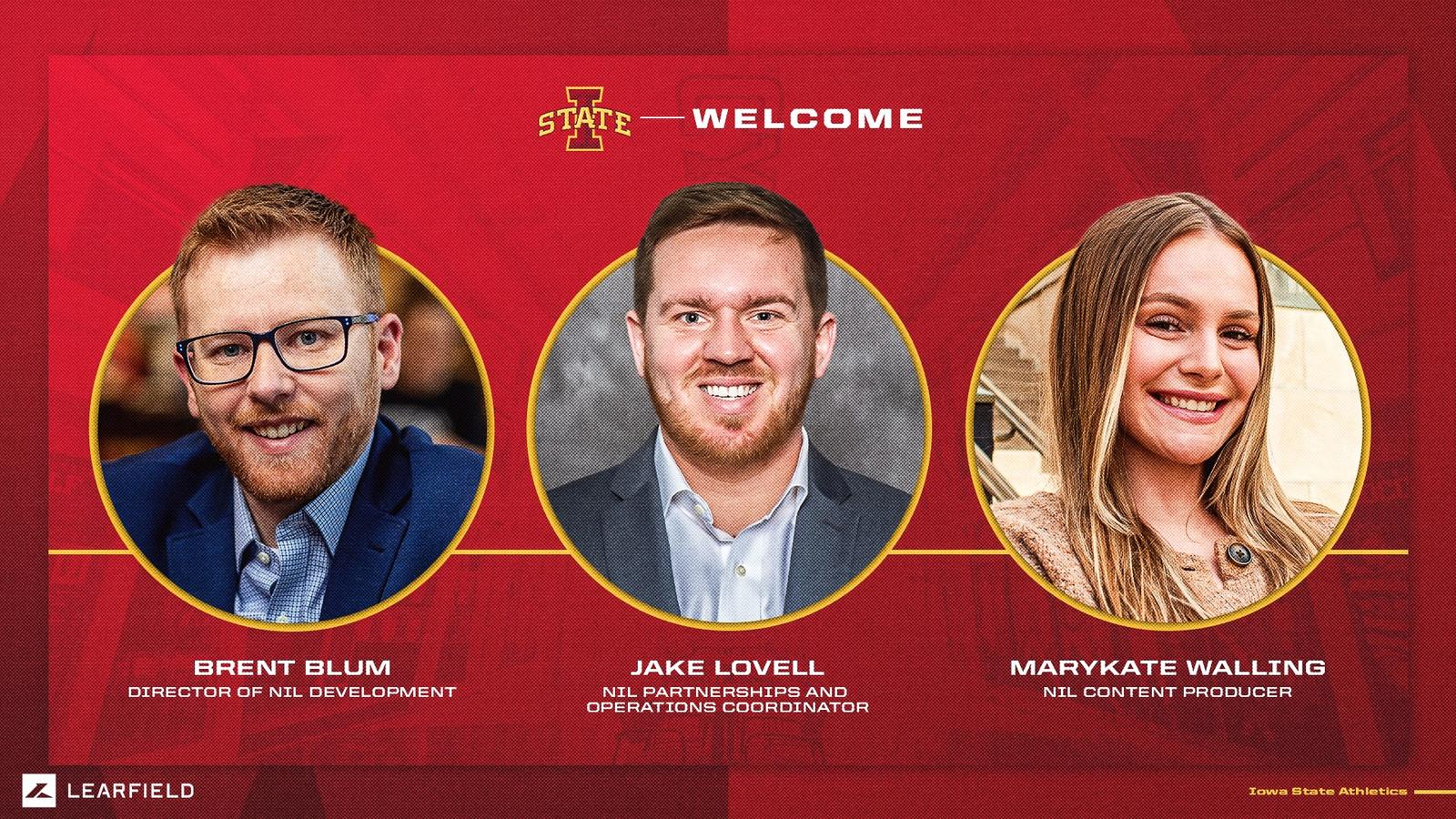
AMES, Iowa – Learfield’s Cyclone Sports Properties, in partnership with Iowa State Athletics and Learfield Impact, Learfield’s industry-leading Name, Image and Likeness (NIL) service combining the power of expert people, award-winning content, and innovative technology, has announced the appointment of Brent Blum as the new Director of NIL Development, Jake Lovell as NIL Partnerships and Operations Coordinator and MaryKate Walling as NIL Content Producer.
“We are excited to launch this innovative initiative with Learfield as we navigate this new world intercollegiate athletics enters starting July 1,” ISU Director of Athletics Jamie Pollard said. “We believe that these positions are a continued evolution of our long-standing partnership and allow us to create additional opportunities through existing and new corporate partners.”
Learfield Impact integrates the addition of these three on-campus NIL leadership positions, innovative technology in the form of Learfield’s Compass NIL dealmaking platform, and the Emmy Award-winning Learfield Studios content team into an unmatched full-service NIL offering. This powerful combination seamlessly generates authentic dealmaking and creates opportunities for influential storytelling content between student-athletes and brand partners.
In this newly created role, Blum will help oversee the university’s evolving NIL strategy, working closely with student-athletes, coaches and donors, as well as the Iowa State Foundation and corporate partners to build innovative and sustainable support. His work will focus on aligning the athletic department’s NIL vision with national best practices while staying true to the culture and values of Iowa State.
Blum currently serves as Executive Director of the We Will Collective, where he has helped raise over $12 million in support of Iowa State student-athletes, backed by contributions from more than 10,000 individual donors and area businesses.
“Cyclone Nation’s involvement is as important as ever as we tackle this transition in college athletics,” Blum said. “This next chapter gives us the opportunity to build a more unified and long-term NIL infrastructure for Iowa State. In the short term, continued support of We Will is vital as we move forward.”
Lovell, who has been a member of the CSP staff for three years, will assist Blum in fulfilling NIL sponsorships and Walling, who received both her undergraduate and master’s degrees from Iowa State while working as a content producer for the Cyclone Football program, will produce NIL-related content for CSP sponsors.
With the House settlement approved by Judge Claudia Wilken earlier this month, the Iowa State Athletics Department will now provide direct financial support to Cyclone student-athletes on top of the world-class education and other benefits that they currently receive. Nearly every Cyclone student-athlete will receive a financial payment from the University for their NIL rights beginning on July 1.
Iowa State Athletics will provide the maximum revenue-sharing amount allowed, currently projected to be $20.5M for the 2025-26 fiscal year, by the House settlement to its student-athletes. The We Will Collective will begin transitioning its members to the We Will Fund that will be housed within the ISU Foundation next month. Contributions to the We Will Fund will allow donors to invest in the support of student-athletes while helping ISU ensure future success of its championship-caliber programs.
“The Iowa State fan base has long-been recognized as one of the nation’s most-loyal, and their continued generous support of the We Will Fund will be critical as we move into college athletics’ new era,” Pollard said. “We are grateful for all of our fans who have contributed to the We Will Collective over the last few years and it is our sincere hope they continue that support as we transition to the We Will Fund to ensure that our programs are positioned for greater success in this new era.”
About Learfield
Learfield is the leading media and technology company powering college athletics. Through its digital and physical platforms, Learfield owns and leverages a deep data set and relationships in the industry to drive revenue, growth, brand awareness, and fan engagement for brands, sports, and entertainment properties. With ties to over 1,200 collegiate institutions and over 12,000 local and national brand partners, Learfield’s presence in college sports and live events delivers influence and maximizes reach to target audiences. With solutions for a 365-day, 24/7 fan experience, Learfield enables schools and brands to connect with fans through licensed merchandise, game ticketing, donor identification for athletic programs, exclusive custom content, innovative marketing initiatives, NIL solutions, and advanced digital platforms. Since 2008, it has served as title sponsor for the acclaimed Learfield Directors’ Cup, supporting athletic departments across all divisions.
NIL
Brent Blum Named Director of NIL Development for Cyclone Sports Properties
Jake Lovell and MaryKate Walling set to join Learfield Impact NIL team at CSP AMES, Iowa – Learfield’s Cyclone Sports Properties, in partnership with Iowa State Athletics and Learfield Impact, Learfield’s industry-leading Name, Image and Likeness (NIL) service combining the power of expert people, award-winning content, and innovative technology, has announced the appointment of Brent […]
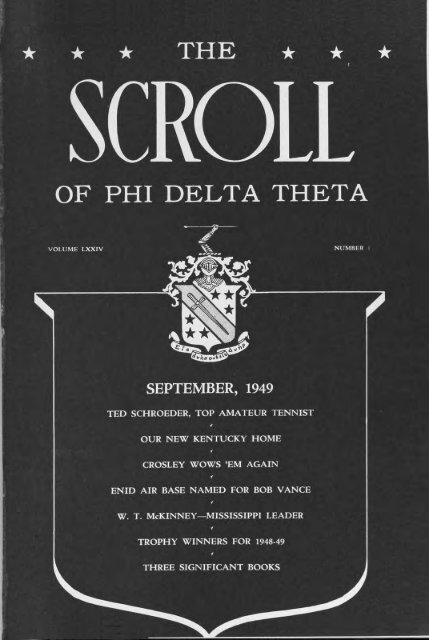
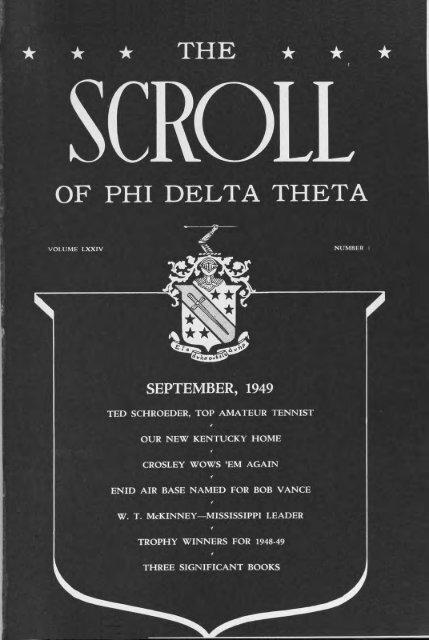

Jake Lovell and MaryKate Walling set to join Learfield Impact NIL team at CSP
AMES, Iowa – Learfield’s Cyclone Sports Properties, in partnership with Iowa State Athletics and Learfield Impact, Learfield’s industry-leading Name, Image and Likeness (NIL) service combining the power of expert people, award-winning content, and innovative technology, has announced the appointment of Brent Blum as the new Director of NIL Development, Jake Lovell as NIL Partnerships and Operations Coordinator and MaryKate Walling as NIL Content Producer.
“We are excited to launch this innovative initiative with Learfield as we navigate this new world intercollegiate athletics enters starting July 1,” ISU Director of Athletics Jamie Pollard said. “We believe that these positions are a continued evolution of our long-standing partnership and allow us to create additional opportunities through existing and new corporate partners.”
Learfield Impact integrates the addition of these three on-campus NIL leadership positions, innovative technology in the form of Learfield’s Compass NIL dealmaking platform, and the Emmy Award-winning Learfield Studios content team into an unmatched full-service NIL offering. This powerful combination seamlessly generates authentic dealmaking and creates opportunities for influential storytelling content between student-athletes and brand partners.
In this newly created role, Blum will help oversee the university’s evolving NIL strategy, working closely with student-athletes, coaches and donors, as well as the Iowa State Foundation and corporate partners to build innovative and sustainable support. His work will focus on aligning the athletic department’s NIL vision with national best practices while staying true to the culture and values of Iowa State.
Blum currently serves as Executive Director of the We Will Collective, where he has helped raise over $12 million in support of Iowa State student-athletes, backed by contributions from more than 10,000 individual donors and area businesses.
“Cyclone Nation’s involvement is as important as ever as we tackle this transition in college athletics,” Blum said. “This next chapter gives us the opportunity to build a more unified and long-term NIL infrastructure for Iowa State. In the short term, continued support of We Will is vital as we move forward.”
Lovell, who has been a member of the CSP staff for three years, will assist Blum in fulfilling NIL sponsorships and Walling, who received both her undergraduate and master’s degrees from Iowa State while working as a content producer for the Cyclone Football program, will produce NIL-related content for CSP sponsors.
With the House settlement approved by Judge Claudia Wilken earlier this month, the Iowa State Athletics Department will now provide direct financial support to Cyclone student-athletes on top of the world-class education and other benefits that they currently receive. Nearly every Cyclone student-athlete will receive a financial payment from the University for their NIL rights beginning on July 1.
Iowa State Athletics will provide the maximum revenue-sharing amount allowed, currently projected to be $20.5M for the 2025-26 fiscal year, by the House settlement to its student-athletes. The We Will Collective will begin transitioning its members to the We Will Fund that will be housed within the ISU Foundation next month. Contributions to the We Will Fund will allow donors to invest in the support of student-athletes while helping ISU ensure future success of its championship-caliber programs.
“The Iowa State fan base has long-been recognized as one of the nation’s most-loyal, and their continued generous support of the We Will Fund will be critical as we move into college athletics’ new era,” Pollard said. “We are grateful for all of our fans who have contributed to the We Will Collective over the last few years and it is our sincere hope they continue that support as we transition to the We Will Fund to ensure that our programs are positioned for greater success in this new era.”
About Learfield
Learfield is the leading media and technology company powering college athletics. Through its digital and physical platforms, Learfield owns and leverages a deep data set and relationships in the industry to drive revenue, growth, brand awareness, and fan engagement for brands, sports, and entertainment properties. With ties to over 1,200 collegiate institutions and over 12,000 local and national brand partners, Learfield’s presence in college sports and live events delivers influence and maximizes reach to target audiences. With solutions for a 365-day, 24/7 fan experience, Learfield enables schools and brands to connect with fans through licensed merchandise, game ticketing, donor identification for athletic programs, exclusive custom content, innovative marketing initiatives, NIL solutions, and advanced digital platforms. Since 2008, it has served as title sponsor for the acclaimed Learfield Directors’ Cup, supporting athletic departments across all divisions.
-

 Motorsports2 weeks ago
Motorsports2 weeks agoNASCAR Weekend Preview: Autódromo Hermanos Rodríguez
-

 Motorsports2 weeks ago
Motorsports2 weeks agoNASCAR Through the Gears: Denny Hamlin has gas, a border needs crossing, and yes, that’s a Hemi
-

 NIL3 weeks ago
NIL3 weeks agoShai Gilgeous
-

 Motorsports2 weeks ago
Motorsports2 weeks agoNASCAR Race Today: Mexico City start times, schedule and how to watch live on TV
-
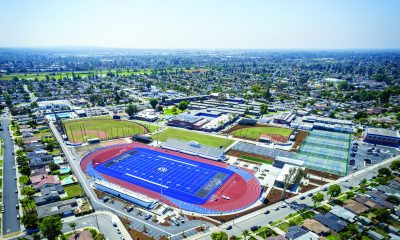
 Health3 weeks ago
Health3 weeks agoNew Era Begins As House Settlement Approved
-
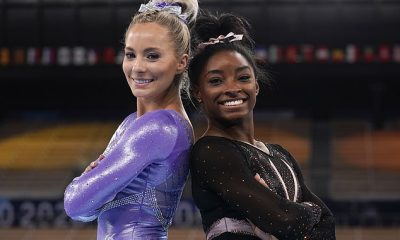
 Health2 weeks ago
Health2 weeks agoGymnast MyKayla Skinner Claims Simone Biles 'Belittled and Ostracized' Her amid Riley …
-

 High School Sports2 weeks ago
High School Sports2 weeks agoHighlights of the Tony Awards
-
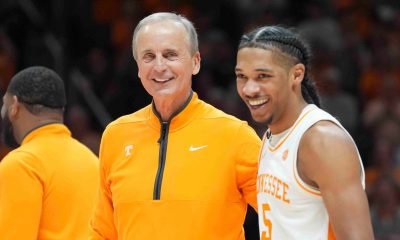
 NIL2 weeks ago
NIL2 weeks agoTennessee law supersedes NCAA eligibility rule
-

 College Sports2 weeks ago
College Sports2 weeks agoFisk to discontinue history-making gymnastics program after 2026 | Area colleges
-

 Sports2 weeks ago
Sports2 weeks agoCoco Gauff, The World's Highest






 | June 19, 2025
| June 19, 2025


























